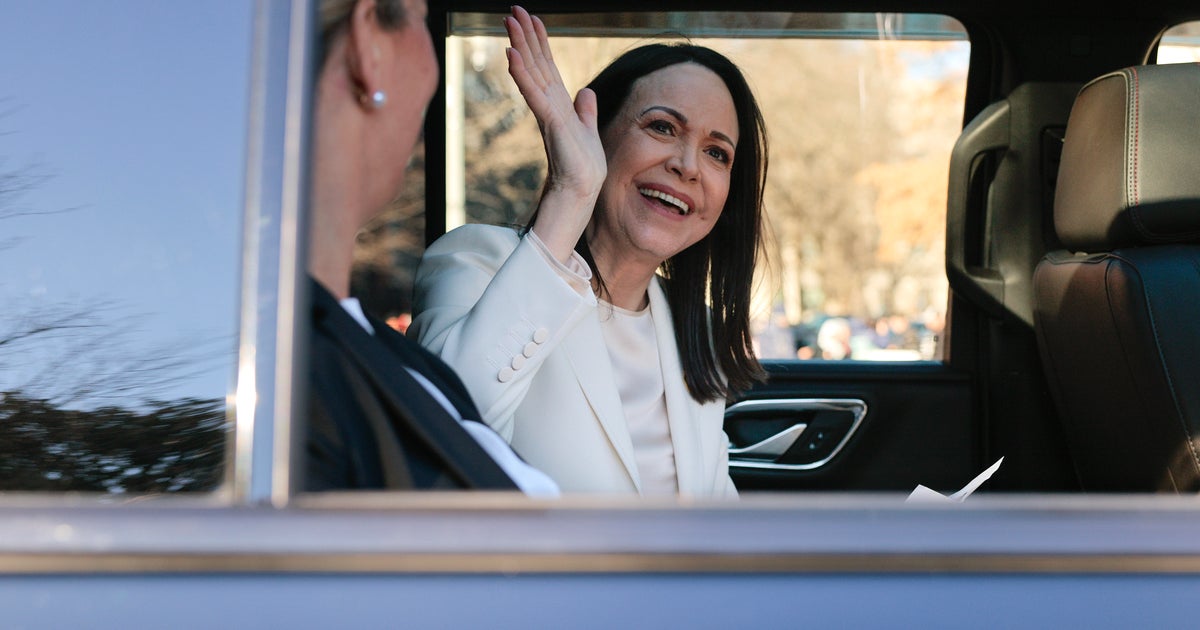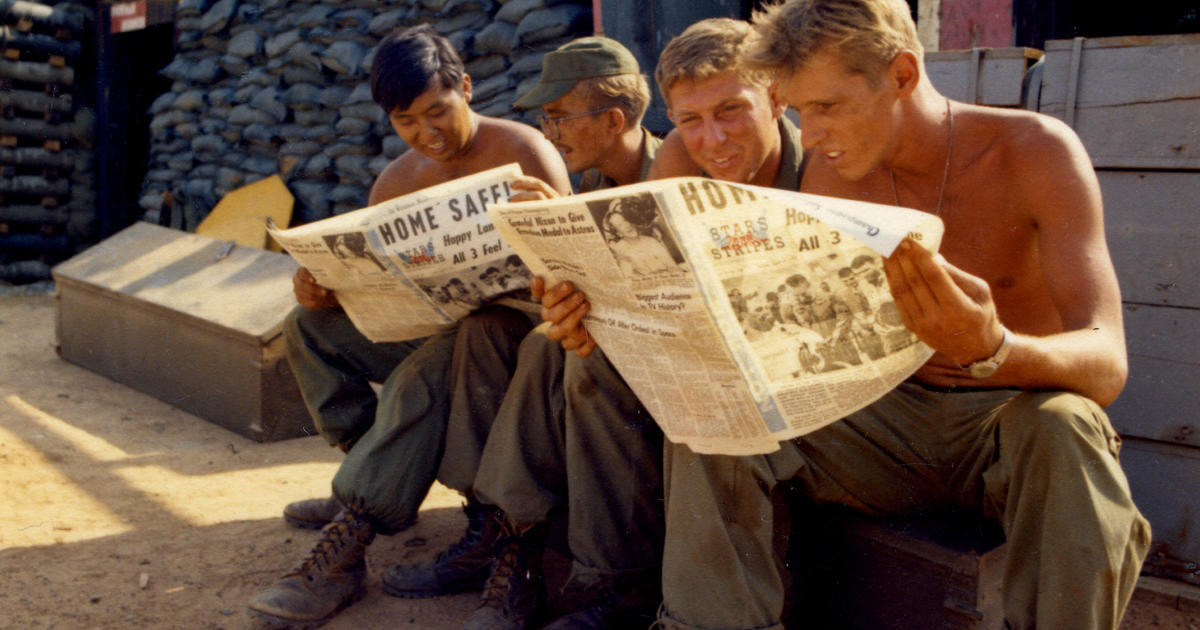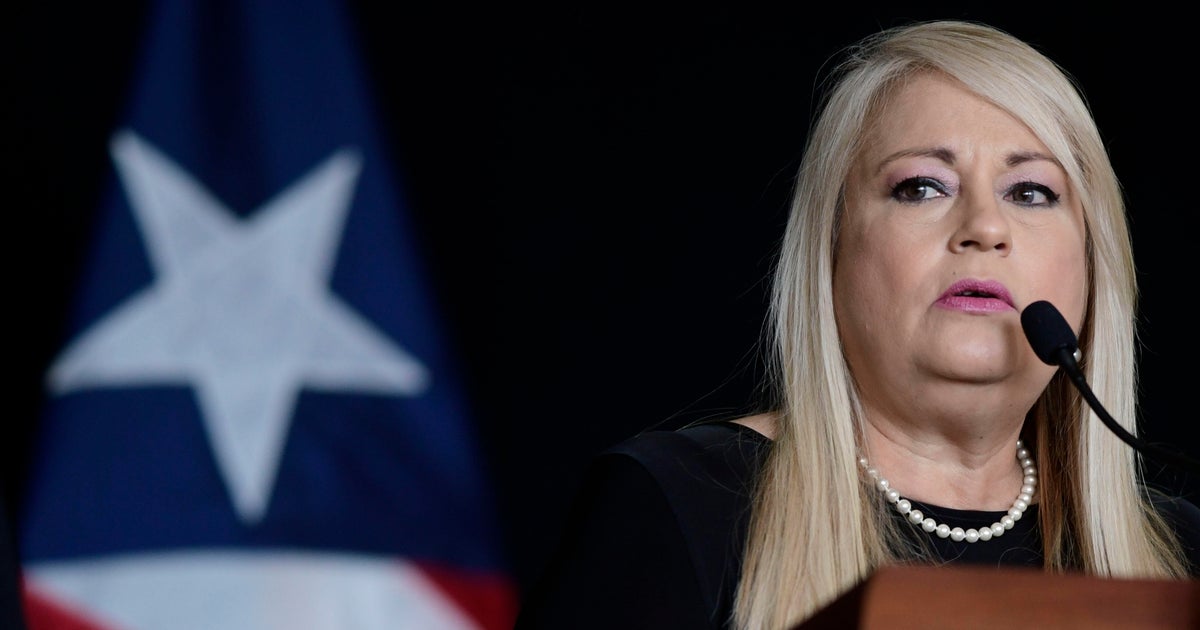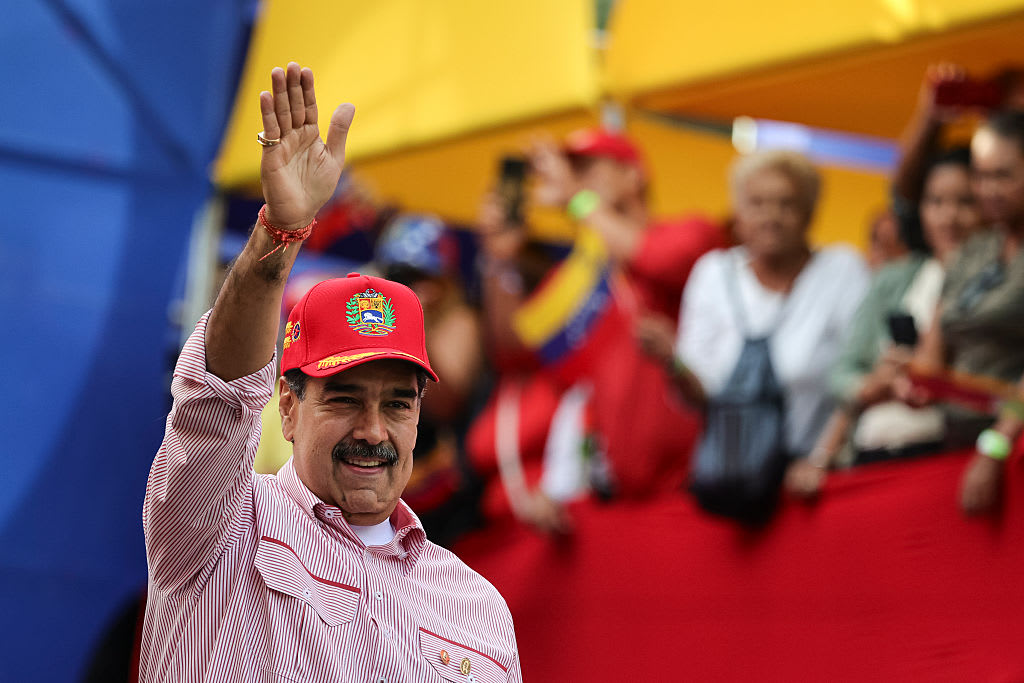Family of American held in Venezuela works for his return
Laurie Holt was shaking. It was the Friday before 4th of July weekend and she was looking forward to her traditional barbecue celebration with family in Idaho. Instead, an emergency Facebook message met her when she got home from work.
It said her 24-year-old son, Josh Holt, had been seized and imprisoned by a Venezuelan police squad on espionage charges. She didn't want to believe it. The message came from a family member of Josh's new wife, an Ecuadorian-Venezuelan woman he had been married to for less than a month.
"I knew everything going forward was going to be chaotic. Now, we just don't stop," Laurie told CBS News of efforts with her husband, Jason Holt, to get Josh back. "Nothing is the same," she says.
Since reading that Facebook message in June 2016, the Holts have spent over $30,000 in lawyer fees, made repeated trips to Washington, D.C., to meet with U.S. government officials and laced their every waking hour with visions of their son's release. It is hard for Laurie to get out of bed each morning. She feels weak. At any point on any day, exhaustion can overtake her.
"I have anxiety all the time," Laurie says with a trembling, tearful voice.
Yet after a recent trip to D.C. she felt some optimism. Laurie and Jason Holt met with government officials at the State Department and on Capitol Hill. Then, surprisingly, they were invited to the White House. For Laurie, "new doors have opened" with the arrival of the Trump administration.
"They told me Trump knows," Laurie says of her White House meeting. "Before, I didn't know who knew about it. I had hoped the message had gotten to Obama but I was not sure."
During the Obama administration they did have a devoted advocate: Under Secretary of State Tom Shannon. He gave the parents his personal cell phone number and was in touch regularly. Shannon is still working with the Holts, but during the Obama years they were frustrated that they never heard from president or then-Secretary of State John Kerry. There is a slight sense of relief now that Mr. Trump is informed.
Now, due to concerns about Josh's health condition that have emerged since he has been in prison, there is a heightened sense of urgency.
Last month, State Department spokesman Mark Toner called on the Venezuelan government to "immediately release Joshua Holt on humanitarian grounds." Toner also said Josh's health is a concern. Officials at the U.S. embassy in Venezuela visited Josh recently but would not provide any details publicly.
Josh isn't the only one whose health is on the decline in Venezuela.
The country is drowning in an escalating political and health crisis. A new study shows that nearly 75 percent of the population lost about 19 pounds in the last year due to the scarcity of food. The pro-government Venezuelan Supreme Court did away with the National Assembly earlier this year, before reversing the decision days later as violent protests engulfed the streets.
But Venezuelan President Nicolás Maduro continues to gut democratic institutions in the country. The State Department characterizes his behavior as trying to "change the rules of the game" so his "cronies"can remain in power.
"What did the regime do when they lost the national assembly elections in 2015? They immediately sacked and then packed the Supreme Court. When they saw they would lose gubernatorial elections in 2016, they canceled the elections. They saw they would lose a recall referendum, they scuppered it. They sabotaged it," says the State Department's Deputy Assistant Secretary for the Bureau of the Western Hemisphere, Michael Fitzpatrick.
There is no indication that the political turmoil in the country will come to a stop anytime soon.
Venezuela recently announced it would be pulling out of the Organization of American States, a regional body that had been critical of the Maduro regime, and has continued to isolate itself from the international world as unrest rocks the country. When the health ministry came out with a new report earlier this month showing maternal mortality had risen 65 percent in the last two years, the Health Minister was ousted.
This catastrophic environment is drawing attention to the country and serves as a bitter backdrop to Holt's case. The channels of communication between the two countries are less fluid than they have been in the past, and even backchannel relationships have been severed as Maduro increasingly acts in an authoritarian manner.
Some warn that Holt could become the next Alan Gross, an American political prisoner held in Cuba for 5 years. Gross was not released until just hours before the Obama administration announced restore full diplomacy with Cuba .
A bipartisan group of U.S. Senators introduced a bill earlier this month to increase pressure on the country. Among other things, it called for sanctions and for the State Department to coordinate an international response to the crisis in Venezuela. However, it did not name Josh Holt as a political prisoner and demand for his release.
"He is a bargaining chip," says former Gov. Bill Richardson, D-New Mexico, who has undertaken diplomatic efforts to release hostages in the past. He is also working with the Holts to get Josh home, and his personal friendships with Venezuelan politicians are fueling their efforts.
The Maduro government has approved a Richardson to visit Venezuela, but they have not yet given him a date or a visa. Meanwhile, Richardson does not know what the Venezuelan government wants in exchange for Holt, as they have not put a price tag on the table.
Laurie says that this lack of information is especially difficult but hasn't stymied her efforts. And while knowing that his health is on the decline is deeply disheartening, it hasn't erased memories her once-healthy son.
"When he smiles. his eyes just kind of twinkle," says Laurie. "I just want him to know not to give up, because I am not."





